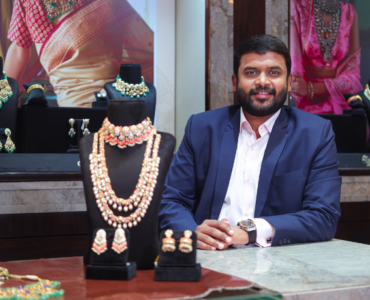In the wake of International Men’s Day, it is crucial to highlight an often overlooked aspect of modern masculinity: the complex relationship between men and their sexuality. While society’s expectations of men have evolved, many still grapple with issues related to their sexual well-being and mental health. Mehak Walia, in conversation with Aayushi Srinivasan (MWP, GMBPsS), the Head of Operations and senior counselling psychologist at IAMH, and a respected member of the British Psychological Society since 2018 along with Ummang Sharma Bajpai (MWP, GMBPsS), an Integrative Psychologist and the Services and Innovation at the IAMH.

Over the years, the concept of masculinity has undergone a significant transformation. Traditional notions of what it means to be a man have evolved into a more nuanced understanding. Men are encouraged to express their emotions, engage in caregiving roles, and break free from rigid stereotypes. However, this expectation shift hasn’t entirely erased the complexities surrounding male sexuality. Toxic masculinity still lingers in our society, manifesting in how men are expected to be sexually aggressive, emotionally distant, and dominant. These outdated ideas can lead to a toxic relationship with sex, where men feel pressured to conform to societal expectations rather than embracing a healthy and authentic sexual identity. The only way to break down this barrier towards a better society where men can shed the toxicity and explore life as humans is to address these issues head-on. The eradication of toxic masculinity starts with breaking down the stereotypes that hinder men from being authentic and seeking support when needed. Psychologists Aayushi Srinivasan and Ummang Sharma Bajpai share their thoughts on the topic.
Aayushi believes that “Modern men face a range of mental health challenges regarding their sex life, often stemming from unrealistic expectations they set on themselves or even the way society thrusts onto them. One of the most common challenges faced when men are in a relationship is performance anxiety. Many men experience anxiety due to unrealistic expectations often perpetuated by pornography or the anxiety to conform to cultural norms on how a ‘man’ should be in a said relationship. Another common challenge men face is Erectile Dysfunction. While ED can be seen as a physiological condition, it can significantly impact men’s mental health and lead to frustration, feelings of inadequacy, and low self-esteem. While we are on this, men struggling with premature ejaculation may also feel a loss of control and worry about satisfying their partner, which leads to stress and anxiety.”


She added, “Meanwhile, another challenge often not commonly addressed, as it is in women, is hormonal imbalance and its effects on men’s self-esteem and overall well-being. Let’s say, for example, having a low libido or low interest in sex can affect the way men perceive their role and affect their perception of their ‘importance’. This can not only impact their sexual confidence but also tie in with body image issues and, therefore, lower self-esteem. Furthermore, it’s also a fact that men have very particular sexual kinks or fetishes. Men can often struggle with acceptance of a fetish: perhaps their desires are incompatible with their partner’s preference, or it may be portrayed as a joke in popular media – and this may cause them quite a bit of distress or challenges in their mental health. However, it is important to note that what one person may believe absurd might be a genuinely troubling issue for other men.”
Furthermore, while discussing how pressure and expectations impact a man’s perception of his own sexual performance and identity, Ummang expressed, “You see, media portrayals of ‘the ideal man’ are all around us. Due to the lack of comprehensive sex education in our curriculums, most boys and young people turn to internet pornography for guidance on what to expect and what is expected when it comes to sex. And that’s an extremely unrealistic place for such guidance. To be comfortable with sex, we need to be comfortable with ourselves and our partners – and a lot of awkward questions or confusing aspects of sex are not dealt with in pornography, as it’s not meant to be a medium of education. And that’s where the seeds of insecurity are sown.”

He further added, “Since traditional gender roles often inhibit men from being vocal about their vulnerabilities or insecurities, these often simple-to-resolve issues snowball into catastrophic thinking and intense shame. This is also an issue across sexual orientations – for example, many gay, bisexual, and pan men struggle with severe body image issues. When you’re watching TV, and there’s a lack of representation of diverse body types – you don’t realize its okay to look different from the on-screen examples. Within the gay community too, there is a degree of idealization for hyper-masculine behaviours, which can end up hurting everyone involved.”
While discussing the psychological impact of these issues, Aayushi exclaimed, “There are quite a few psychological factors that can contribute to performance anxiety and other such issues in men. The first is the fear of failure, i.e., the fear of being unable to sustain or maintain an erection, ejaculating prematurely, or even not satisfying their partner. Furthermore, some men who face this anxiety may believe they are inadequate or incompetent to satisfy their partner. Men also draw comparisons to the ‘ideal’ boasting male, so they may feel the need to perform perfectly every time, which is unattainable and contributes to anxiety. Some men compare themselves to others, whether real-life competitors or unrealistic ideals presented in pornography. These comparisons can lead to feelings of insecurity and inferiority. It’s quite safe to say that insufficient communication with a partner regarding sexual preferences, desires, and worries can result in misinterpretations and worsen performance anxiety. The apprehension of being judged can discourage candid and open discussions.”
Another facet contributing to these awful and toxic thought processes is the fact that there are a lot of layers of stigma associated with men’s mental health and sexuality that need to be discussed. While elaborating on the same, Ummang added, “One of the most common stigmas is that ‘Men are always up for sex’, and simply isn’t true. Many factors will influence how ready a man is for sex, including hormonal cycles, how stressed they are if they’re on medication, which may have a low sex drive as a side effect if they’re feeling aroused by the partner or situation, and many more. What’s also very important to remember is that Men can also say ‘no’. It’s okay to say no; it doesn’t make you ‘less of a man’. And a partner must respect this. Another common one is that ‘Men don’t like talking about their feelings’, which isn’t accurate either- men often don’t know how to talk about their feelings. The way men are socialised, only certain topics are considered ‘okay’ to discuss. So, when faced with complex emotions and distressing thoughts, men have difficulty facing up to these. It’ll be difficult to unpack it suddenly if you’ve been told to deny certain parts of your lived experience growing up. But they can open up once they find themselves in a non-judgmental space.”

He added, “People also believe that ‘men prefer solitude’, which is wrong; we all have a different degree of social interaction we prefer – most of us need it. Again, humans are social creatures, and many radicalized men often suffer from loneliness, and spaces that may be hateful towards others end up offering a sense of community to them. So, it’s important to get rid of this idea that men like solitude and to reach out and listen to the men in our lives. It is also commonly believed that ‘Men can’t experience sexual assault’, which is wrong because when it comes to anything sexual, affirmative consent is essential no matter the gender identity of your partner. It’s also important to note the degree of societal stigma associated with such instances – sadly, most complaints of sexual assault are not taken seriously, and we as a society need to do better. Lastly, don’t even get me started on the number of ridiculous myths revolving around masturbation. A healthy sexual relationship with yourself can often make you feel more secure and allow you to understand your body and your preferences better. Do it safely, and avoid doing it passively. “
When asked if there are any specific resources or therapies to help men overcome these challenges, Ummang stated, “No specific kind of therapy is a one-size-fits-all approach. We’re all unique individuals, so we need to find out what works for us. I typically suggest Cognitive Behavioural Therapy as a good starting point – as it helps us identify and challenge some of our core beliefs. It’s also rather action-oriented, which can bring in a sense of progress earlier than other forms of therapy. But CBT is sometimes insufficient – for folks with difficulty regulating their emotions (including the often normalised ‘anger issues’), Dialectical Behavioural Therapy might be useful. If you’re a Trans man, or if your sexual orientation is not heterosexual, then you must be careful to ensure your therapist understands what being LGBTQIA+ affirmative in therapy is. Even if you’re straight and cisgender, it might be good to have a therapist who understands and makes space for intersectionality in their work.”
He added, “There’s a lot of self-help that can work too – but one has to be careful. There are a lot of people who just want to make a quick buck without actually helping out there. Look for resources backed by scientific research rather than social media metrics. The Remaking Manhood community, with books and podcasts, can be a place to find such information. Nothing’s Wrong: A Man’s Guide to Managing His Feelings by David Kundtz might be helpful too. Learning to be compassionate with yourself (different from self-pity) can be very helpful, and Dr Kristen Neff has great work on ‘Fierce Self Compassion’.”
So, as you embark on the journey of being a modern man seeking to improve himself this International Men’s Day, you must remember that you will inevitably encounter content, be it books, podcasts, or videos, that challenge traditional notions of ‘manhood’ and the beliefs attached to it. This experience may sometimes feel like a personal attack, but it’s essential to acknowledge that feeling. Take the time to reflect rationally and emotionally on why this discomfort arises, and then bravely move forward, refusing to let it consume you. Embracing that discomfort is a vital step toward personal growth and self-discovery. Feeling apprehensive about seeking help is normal, but it’s crucial to do so nonetheless. Ultimately, it’s about transcending the limitations of outdated stereotypes and becoming the best version of yourself.














